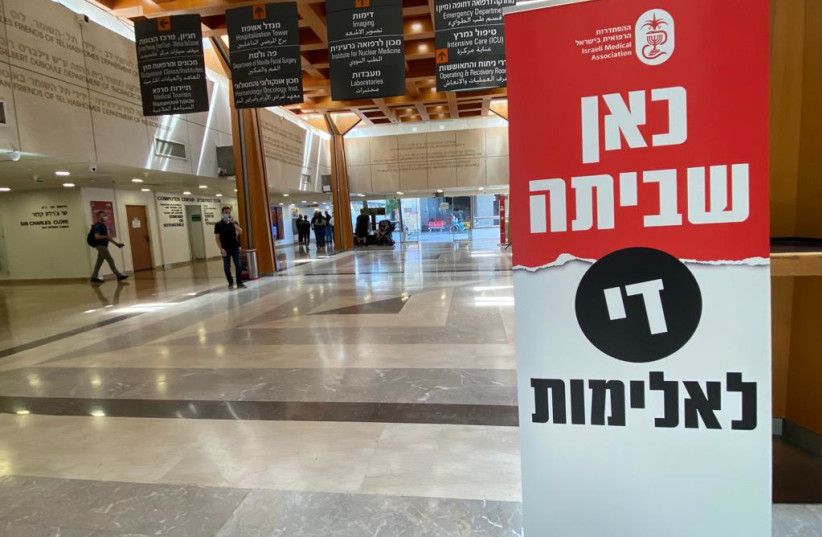The government approved a proposal put forward by Health Minister Nitzan Horowitz on Sunday afternoon that will require all hospitals to have a police station on the premises.
The proposal – put forward by the health minister with the cooperation of Finance Minister Avigdor Liberman and Public Security Minister Omer Bar Lev – was drafted following the recent wave of violence against medical workers in hospital settings.
Two weeks ago, public hospitals across Israel implemented a 24-hour strike in response to violent events just days apart at both Hadassah-University Medical Center and the Galilee Medical Center.
The demands laid out by the Israel Medical Association (IMA) ahead of the strike included police presence in emergency rooms, increased and improved security systems in hospitals and medical clinics, and changing legislation so that attacking a medical staff member would be treated the same as attacking a uniformed police officer.
During the strike, Justice Minister Gideon Sa’ar met with IMA chairman Prof. Zion Hagai, promising him that the government was working on ways to protect medical staff. Sa’ar reported that his office was examining various measures to increase the severity of the punishment against those who act violently toward medical staff.

Meanwhile, while legislative reforms will take more time, Horowitz’s proposal will see permanent police stations in 28 hospitals across the country, with an annual budget of NIS 20 million dedicated to providing personnel for the additional stations.
“The medical staff, who are at the forefront of protecting the health of all of us, should not face bullying and violence,” Sa’ar said in a statement ahead of the government’s decision. “A nurse who is involved in saving lives is not a police officer and should not be afraid of being attacked.
“As I promised, we will commission police positions within the hospitals, who will be able to respond in real-time to any violent incidents. The police will deal with law enforcement, and the doctors will deal with medicine.”
“As I promised, we will commission police positions within the hospitals, who will be able to respond in real-time to any violent incidents.”
Health Minister Nitzan Horowitz
Reactions
Reacting to the news, Hagai thanked Liberman for approving the NIS 20m. budget the plan will require, adding that the funding was a critical requirement for fighting the “epidemic of violence” in Israeli hospitals.
Health Committee chairwoman MK Idit Silman said she is glad that “after the Knesset Health Committee held many discussions on the subject, conducted patrols in the hospitals where the violence occurred and demanded repeatedly in recent months for broad and immediate practical steps protect medical staffs in hospitals and submit legislation, the government decided to adopt our demands.”
However, without downplaying the importance of the step, she added that she hoped it would be the first of many reforms, including the placement of police inside psychiatric institutions, tougher punishments for attacking medical staff and imposing fines on those who violate the law inside of medical settings.
